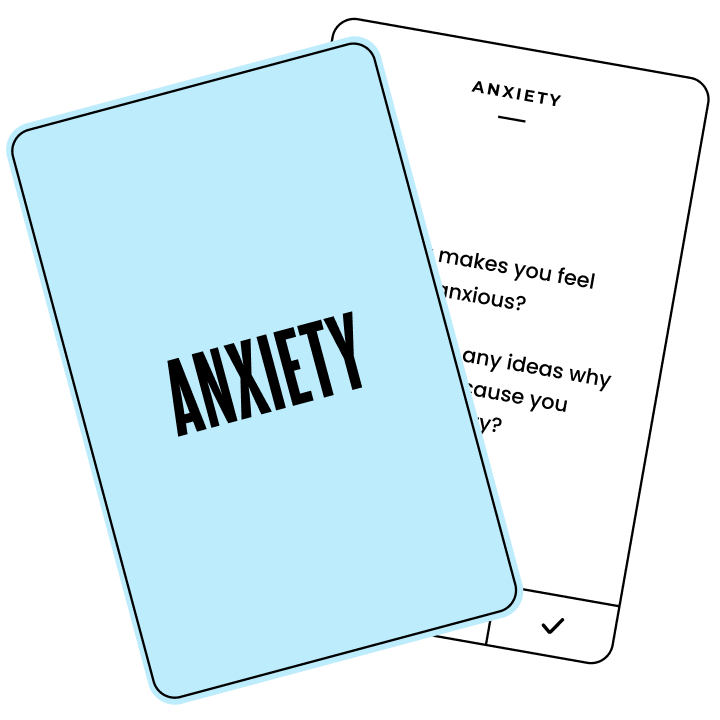

Reflect on what you learned
Continue supporting your child, and keep the conversation going.
Process the conversation
Now that you’ve talked with your child about their emotions, how did it go? Take some time to reflect.
- What did you learn?
- What went well/not well?
- Did your child ask you to support them in a new way? If so, what is your plan to do that?
- Also, think ahead to your next conversation. What might you do differently next time?
If you feel like your child needs more support than you can provide, find resources on our Get Help page.
Take care of yourself
Parents get overwhelmed, too. It's okay if you feel worried or angry while talking with your child, or if you feel sad or disappointed if they don’t want to talk with you.
Take the time to feel and understand your own emotions. Do your best to stay calm and be patient during conversations. After conversations, consider ways for you to process and manage the emotions that came up, which could be with someone like a friend, partner, or therapist.
Remember, it’s okay if you don’t know what to say, feel a bit lost, or need outside support. You don’t have to have all of the answers. (For more tips on how to support your own mental health, visit LoveYourMindToday.org.)


Feeling stuck? Try creating music with your child instead
Sometimes it's hard to say what we're feeling. Luckily, talking isn't the only way to express feelings. Music can also be a great way to communicate. Encourage open communication with your child by listening to and even creating your own music.
Prepare for future conversations

It's okay if they don't want to talk right now

Find a better time to bring the subject back up in the future

Encourage your child to talk with another trusted adult

